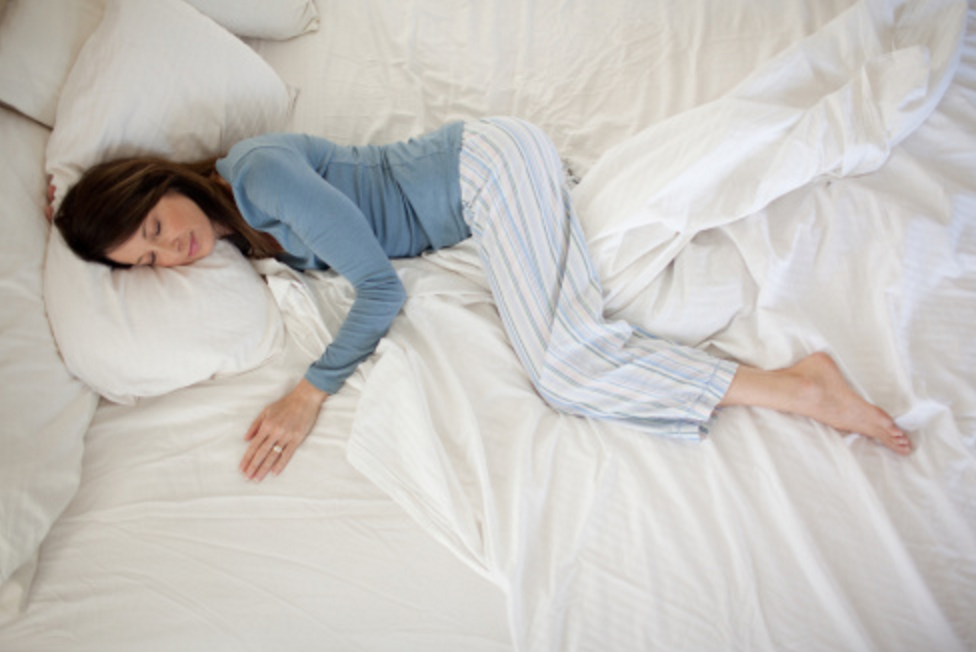7 Tell-Tale Signs You May Have Sleep Apnea
There’s nothing more difficult than sleeping next to a chronic snorer—unless you, yourself, are the one making all the noise! Joking aside, snoring can be a sign of a much more serious problem that shouldn’t be ignored.
If you find yourself being accused of snoring more often than not, you could have sleep apnea, a sleep disorder that causes you to stop and start breathing repeatedly throughout the night. According to Dr. Joseph Ojile in speaking to Self magazine, sleep apnea is typically caused by “some sort of obstruction in airflow in the back of the throat, which blocks air from getting into the lungs as you sleep.” This can be the result of having large tonsils, congested sinuses, or in rare cases, a problem with signals that are being sent to your brain. Obesity can also be a major risk factor for sleep apnea, sleep expert Dr. Daniel Barone told Self.
Untreated, sleep apnea can cause major illnesses like type 2 diabetes. To avoid further health complications, we’ve rounded up the top signs to hep you determine if you have sleep apnea:
You are tired throughout the day even though you slept for plenty of hours.
The irregular breathing patterns caused by sleep apnea will cause you to wake up throughout the night, even if you aren’t fully aware of it. This will disrupt your sleep and leave you feeling exhausted throughout the day.
Choking and gasping in the night can also cause your hormone levels to rise, leading to higher blood pressure and heart rate. So, instead of allowing your brain and body to shut down overnight, these two elevated factors will prevent you from entering into a state of complete rest.
You wake up with a headache.
If getting up in the morning is synonymous with a pounding headache, you could have sleep apnea. Irregular breathing patterns can cause difficulty in blood flow and changes in oxygen levels in the brain, which are ultimately responsible for the unpleasant pain in your head.
You have high blood pressure.
You may also have sleep apnea if your blood pressure is hard to control. The stress sleep apnea induces on your body and heart throughout the night can raise blood pressure levels to dangerous heights. In fact, according to the American Association for Respiratory Care, up to 50 percent of sleep apnea patients also have high blood pressure. Dr. Ojile says that if your physician has had trouble treating you for hypertension, it’s probably a good idea to get tested for sleep apnea, too.
You experience heart palpitations for no apparent reason.
You’ll probably feel your heart flutter when you get nervous for an upcoming event, but if you’re experiencing these sensations out of the blue, this could be a red flag. Irregular heart rhythms, which are caused by changes in oxygen levels when you stop breathing throughout the night, can lead to serious conditions like strokes, blood clots, and heart failure.
You have high blood sugar.
Research has shown that having sleep apnea can mess with your body’s glucose levels. In some cases, this can cause your body to build a resistance to insulin, leading to a higher risk for developing type 2 diabetes.
You have insomnia.
Having trouble falling asleep at night? According to The National Sleep Foundation, people with sleep apnea sometimes report insomnia, although it’s unclear which of the two is the original cause.
You experience constant mood swings.
It’s common knowledge that when you’re tired, you’re more likely to feel cranky or be set off by the littlest things. Depression and irritability can be signs of sleep deprivation, says the Mayo Clinic, and could indicate that sleep apnea is the true culprit of your moodiness.
If you suspect that you or a loved one may be suffering from sleep apnea, make an appointment with your doctor immediately.
h/t Self magazine
Next: Check out these six tricks to help you sleep better tonight.



















